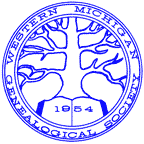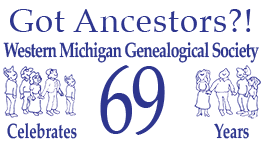Message from President Don Bryant
2012 marks our fifth consecutive GotAncestors?! annual seminar! This year’s program approaches genealogy from diverse perspectives that highlight ways you might not have thought of to uncover your family’s hidden information. Curt B. Witcher will demonstrate and explain approaches you can take to answer your research question marks – those people in your history who seem to appear out of nowhere only to disappear.
Several years ago, I studied the 1630s Great Migration to New England. Then at one of our previous seminars, I was reminded of another Great Migration – that of the African-American populations from the southern states to the north. Different ethnic groups, but exactly the same concepts are involved when studying migration patterns. Cluster research focuses on ethnic and family origins in order to research family history as a group and is one of the five topics at this year’s seminar.
Mr. Witcher offers his expertise on other subjects. Military records, which exist for practically every generation, provide a key perspective to understanding your ancestors in historical context. Federal population schedules, key components of any family history project, are not the only census records valuable to genealogists. One should not ignore other types of censuses that shed light on areas like agricultural, social, slavery, manufacturing, and mortality. Learn how and where to find new internet resources. Finally, because there are more answers “off-line” than online, learn methodologies and effective ways to use libraries – specifically ACPL. Who better to pose your questions to than the top librarian of one of the best genealogy libraries in the country?
I hope you will join us for the 2012 Got Ancestors?! seminar. Come with your questions and leave with answers about how to fulfill your genealogy endeavors.

